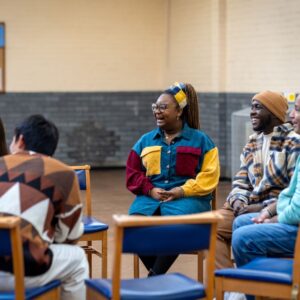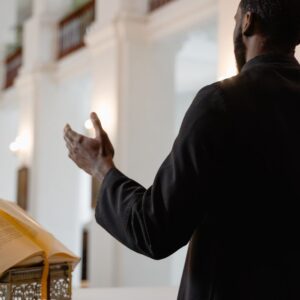I burned my hand while cooking. It was a stupid, split-second mistake with painful consequences. I needed to move a pan that was sitting on the stove – a pan I cook with regularly. However, in my rush, I forgot that tonight, I had put that whole pan into the oven to finish cooking and, without thinking, I grabbed the stainless steel handle with my bare hand.
It’s been a few days and my wound is beginning to heal.
My time in quarantine has been a season of increased reflection.
I also started a new job as Manager of Resilient Leaders Project (Now, The Center for Transforming Engagement) at The Seattle School. So perhaps it comes as no surprise that, in reflecting on this wound, I’ve also been able to synthesize some of the concepts I am learning about resilience.
Because I burned the majority of my dominant hand, I quickly learned just how many things I use that hand to do and that I would need to adapt. Brushing my teeth, washing my hair, opening my coffee creamer, hooking my dog into his harness for a walk…things that have become daily rituals are now infused with an additional level of difficulty, and therefore, require more attentiveness and focus than previously demanded. Other things – cooking dinner, washing the dishes (let’s be honest, multiple times a day), holding a book – I could not adapt to doing on my own and had to ask my partner for help.
As a highly independent person, I hate asking for help.
Not because I feel that I’m a burden or that my husband will lose patience with my neediness, but because I delight in having the freedom and ability to choose to do what I want, when I want, how I want. Quite simply, I am not patient enough to ask for help. Digging down even further, I dislike being reminded that I need other people – but I do. According to research from Resilient Leaders Project, having supportive, close relationships is the first pillar of resilience.
The second thing I noticed is just how much time and attentiveness would be required for my wound to heal effectively and efficiently. I read up on treating burns and learned that I would need to keep my skin from drying out. This means applying medication – very delicately – multiple times throughout the day. It’s become a new ritual – when my wound is dry, I carefully dab a tiny amount on my palm and on each finger, spread very gently, and then spend the next few hours being careful not to get my sticky fingers onto anything that I touch…wash, rinse, repeat. All day. Sometimes, this is an annoyance; other times, it feels like a gift to tend to myself gently. This is the second pillar of resilience – regular rituals and practices of care.
After only a few days, I am seeing real improvement. My pain is greatly reduced and my skin looks much better. Though this repetitive practice took time, I am motivated by a desire to have my wound heal quickly and without scarring, so that I can get back to my normal way of doing things. This is the final pillar – a sense of purpose, knowing my “why”.
As I reflect on this, I can’t help but see parallels to my internal “wounds.” These wounds are as large as memories from childhood which still hurt to prod and as small as my frustration with how cooped up I feel in my own home.
My time in quarantine has invited me to look more closely at my internal life than I ever have before.
My pre-pandemic life contained enough “busy-ness” that I rarely needed to stop and tend to my feelings – that is, until my feelings stopped me. Now that things are quieter and slower, there are fewer distractions from what is going on within. Some days, my feelings seem an inconvenience – a distraction, making me unproductive and unfocused. On other days, it feels like a gift to sit and tend to myself gently.
I am realizing that perhaps, like the burn on my hand, my inner life also requires – and deserves – the support of a caring relationship, daily practices of care, and a sense of purpose to drive the healing process. Healing inner wounds requires the support of close relationships – a partner, close, trusted friends or a therapist. Inner wounds must be attended often, with time and attention, over and over.
Healing is not something to be done once and checked off the list; it requires rituals and practices – small increments done over time. A sense of purpose is necessary to sustain this long, slow, and often painful work – an answer to the question, “Who do I want to be? Why do I want to be healed?” For me, at least for today, the answer is – I want to be a person who can tie my own shoes again.
Interested in learning more? Request information below.










0 Comments